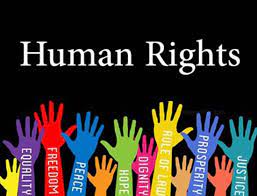U.S. and International Partners Unveil New Code of Conduct Respecting Human Rights Concerns in Relation to Export Control Measures
Alex Cotoia, Regulatory Manager at The Volkov Law Group, rejoins us for a posting on the recent international adoption of a human rights code of conduct. Alex can be reached at [email protected].

On March 30, 2023, the United States Department of State announced the adoption—in conjunction with a host of international partners—of a specific Code of Conduct related to human rights considerations in the context of export controls. Building upon the commitment originally made by the United States at the Summit for Democracy in December 2021, the new Code of Conduct commits “Subscribing States” to a concrete series of principles to be implemented on a multilateral basis when considering additional controls on emerging dual-use technology (including surveillance tools and related technology) that could be utilized by malign actors and governments to suppress democratic dissent, as well as perpetuate and conceal gross violations of international human rights law.
Under the Code of Conduct, the United States and twenty-four (24) other “Subscribing States”—namely, Albania, Australia, Bulgaria, Canada, Costa Rica, Croatia, Czechia, Denmark, Ecuador, Estonia, Finland, France, Germany, Japan, Kosovo, Latvia, The Netherlands, New Zealand, North Macedonia, Norway, Republic of Korea, Slovakia, Spain, and the United Kingdom—each commit to:
- align “domestic legal, regulatory, policy and enforcement tools” consistent with existing multilateral commitments to update and control the export of dual-use goods or technology to end-users that could misappropriate those commodities for the purposes of human rights violations;
- proactively engage with the private sector, academia, researchers, technologists, and civil society concerning human rights abuses and export controls;
- share information regarding emerging threats and risks associated with new tools and technologies among the Subscribing States;
- develop and implement best practices to control exports of sensitive dual-use commodities and technology to both state and non-state actors posing a “unacceptable risk of human rights violations of abuses,” including, but not limited to, seeking “assurances” from recipients that exported items will not be misused, re-exported, or transferred in a manner inconsistent with the Subscribing States’ commitments made pursuant to the Code of Conduct, and requiring recipients to provide “sufficient relevant information” to enable export control authorities to adequately assess the risk that the exported items might be exploited for nefarious purposes;
- actively consult with industry and promote non-state actors’ implementation of appropriate human rights due diligence policies and procedures in line with the UN’s Guiding Principles on Business and Human Rights or other international instruments; and
- improve the overall capacity of non-Subscribing States to conform to the principles articulated in the Code of Conduct, as well as encourage other States to “join, or act consistent with,” the aforementioned Code.

In furtherance of these commitments, the Subscribing States agree to hold ongoing meetings, on an annual basis or otherwise, to further “develop the workings of the Code of Conduct” to establish procedures for the voluntary exchange of relevant information and mechanisms to address policy questions without prejudice to existing export control-related frameworks. The signatory States further commit to designating a Subscribing State to serve as the central contact for receipt of questions concerning the Code and related best practices; designating a national point of contact for inquiries concerning the Subscribing State’s own export control procedures and implementation of the Code of Conduct; discussing human rights concerns related to export license applications (including for items covered by the four (4) existing multilateral export control regimes); sharing information on relevant technologies to be covered by the new human rights/export control initiative; and identifying “collaboration opportunities” with multilateral export control regimes and related initiatives.
While the new Code of Conduct essentially encapsulates considerations that most, if not all, Subscribing States currently evaluate when promulgating export controls with respect to emerging dual-use technologies, the articulation of a concrete framework by such a broad swath of countries serves to warn malign foreign governments and non-state actors that access to emerging technology is predicated on the use of such commodities consistent with long-standing international human rights norms. Governments that choose to perpetuate human rights abuses by utilizing emerging technology to surveil political opponents, stifle democratic dialogue or otherwise suppress dissent risk jeopardizing their access to such technologies altogether.

In a similar vein, the adoption of the Code of Conduct serves as a prescient reminder to the private sector that export controls in relation to emerging technologies is a significant operational imperative that must be addressed in the context of international sales and distribution strategies, as well as embedded into an organization’s existing third-party due diligence, and trade compliance procedures. As human rights concerns become the focus of a variety of overlapping international regulatory regimes—including most ubiquitously, the U.S. Uyghur Forced Labor Prevention Act, and the European Union Directive on Corporate Sustainability Due Diligence—organizations at the forefront of commercializing dual-use technology for the ostensible benefit of humanity have a corresponding responsibility to ensure that their products are not misappropriated by adversary governments and malign actors for nefarious purposes.














